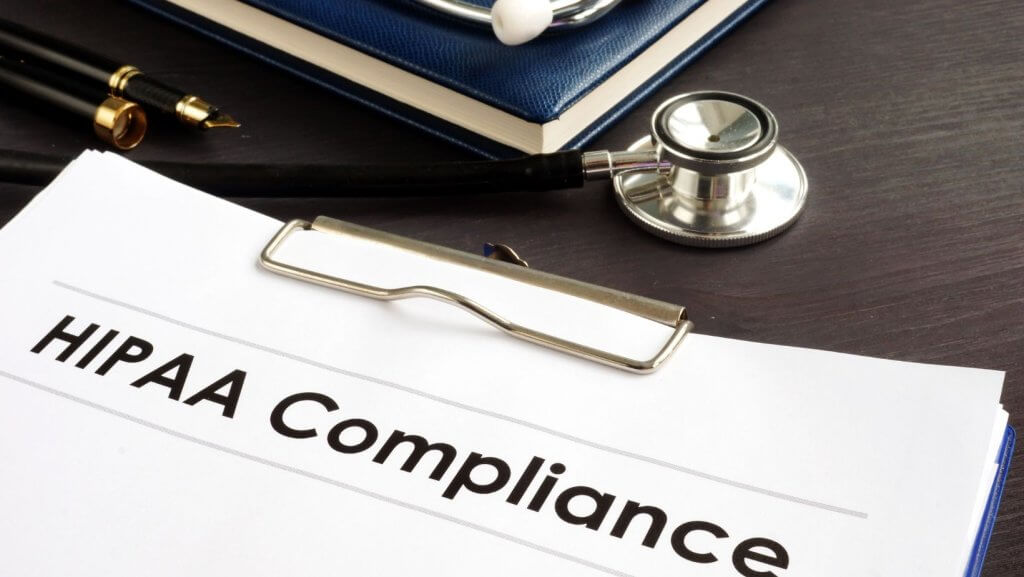

As a healthcare provider, you must protect your patient’s personal information and safeguard their trust in you. With the widespread use of health records and other technological advancements, ensuring HIPAA compliance has become more crucial than ever. Failing to comply with these regulations can result in severe consequences, including hefty fines and damage to your reputation as a provider. Therefore, having a solid understanding of HIPAA guidelines is vital for all professionals working in the healthcare industry. This blog post will provide you with an ultimate HIPAA compliance checklist covering everything from administrative tasks to technical safeguards.
What Is HIPAA Compliance, And Why It’s Important In The Healthcare Industry
HIPAA compliance is a crucial element of the healthcare industry that aims to protect patients’ privacy and secure their personal information. It is a set of rules and regulations that healthcare providers need to adhere to ensure that patient information is confidential and secure. HIPAA laws outline the standards for electronic transactions, patient privacy, and healthcare data security. Compliance with these regulations helps to increase trust between patients and healthcare providers and establish professionalism in the field. The importance of HIPAA compliance cannot be overstated, as it helps protect patients’ rights and maintains the integrity of the healthcare industry. Healthcare providers must commit to following these regulations for the industry’s greater good.
HIPAA Compliance Checklist
Creating A Secure Storage System For Patient Information
Protecting confidential patient information is crucial. That’s why healthcare providers need a system that ensures sensitive data is safely stored and accessed only by authorized personnel. A secure system protects patients’ privacy and builds trust with healthcare providers. The system must be robust and able to prevent data breaches. Implementing multi-factor authentication and encryption methods is essential to ensure information is accessed only by the right people.
Moreover, the system must also have regular audits to ensure it’s up-to-date with modern security threats. Secure shredding containers are a crucial element of HIPAA compliance. They provide a safe and secure way to dispose of paper documents that contain sensitive patient information. Unlike regular bins, these containers are lockable and tamper-proof, ensuring unauthorized individuals can’t access the discarded data. Once full, the contents are collected by a professional shredding company and destroyed in a controlled, confidential manner.
Training Employees On HIPAA Compliance
Protecting sensitive information is paramount. That’s why it’s so important to train employees on HIPAA compliance properly and ensure their understanding of privacy protocols. Training programs can range from online courses with quizzes to in-person sessions with industry experts. Not only is this training beneficial for protecting medical records, but it will also instill confidence in clients who trust their personal information with your organization. With the continued growth of technology, staying up-to-date and taking privacy concerns seriously is vital for any business.
Establishing A Breach Response Plan
A security incident can occur anytime, whether it’s an accidental data release or a malicious attack. That’s why it’s essential to establish a breach response plan to minimize the potential damage and mitigate the risks. A proper plan will include a clear and concise communication strategy to inform the necessary stakeholders, such as customers, employees, and regulatory authorities. It will also outline the steps to identify the root cause of the security incident and prevent similar breaches from happening in the future. By investing time and effort into creating a thorough and actionable response plan, businesses can minimize the damage caused by a security incident and protect their reputation.
Maintaining Accurate Documentation And Records
Keeping accurate records and documentation of HIPAA compliance efforts is crucial for healthcare providers. It helps them stay on track with regulations and enables them to identify areas of improvement. With the constantly evolving healthcare landscape, maintaining these records can seem like a daunting task. However, protecting patient privacy and reducing the risk of data breaches is essential. By prioritizing accurate documentation and record-keeping, healthcare professionals can ensure they do their due diligence to protect patient information. It’s not just a matter of complying with regulations; it’s about safeguarding patients’ trust in their healthcare providers.
Business Associate Agreements
When working with third-party service providers or business associates, ensure proper agreements are in place. Business associate agreements outline the responsibilities and expectations regarding protecting patient information.
Implement Regular Shredding
In compliance with HIPAA regulations, healthcare providers must implement regular shredding of sensitive documents that are no longer needed. This practice minimizes the risk of unauthorized access to patient information and ensures an orderly and clutter-free workspace. Regular shredding schedules can be set up on a weekly, bi-weekly, or monthly basis, depending on the volume of paper-based records. It is important to remember that all shredded documents should be disposed of properly by a professional shredding company to ensure destruction. This regular practice of document destruction is a fundamental part of maintaining HIPAA compliance and is instrumental in securing patients’ trust.
Monitor And Audit Activities
Implement monitoring and auditing mechanisms to track access to patient records. Regularly review audit logs to detect and promptly address any unauthorized access or suspicious activities. This proactive approach can help identify potential security risks and prevent data breaches before they occur. It also shows a commitment to protecting patient information and maintaining HIPAA compliance standards.
Consequences Of Non-Compliance With HIPAA Regulations
Non-compliance with HIPAA regulations can severely affect healthcare providers and disrupt the trust between patients and their caregivers. The consequences can range from financial penalties to criminal charges, depending on the severity of the violation. Monetary penalties can reach up to $1.5 million per violation per year, with the potential for multiple violations.
In addition to financial penalties, non-compliance can lead to reputational damage that can be devastating for a healthcare provider. Patients may lose trust in the provider’s ability to safeguard their personal information, subsequently impacting relationships and potential growth. In severe cases, non-compliance can lead to criminal charges, with potential jail time. Thus, adhering to HIPAA regulations doesn’t just protect patient information – it protects healthcare providers from severe financial and legal ramifications and helps maintain their reputation in the industry.
Conclusion
HIPAA regulations are designed to safeguard sensitive patient information in healthcare organizations. By implementing secure storage, training employees, and establishing regular document shredding, healthcare providers can ensure compliance with HIPAA regulations. Gator Shredding is HIPAA, FACTA, and IRS compliant. We take great measures to ensure that all documents and media are disposed of securely and confidentially by producing a smaller shredder than our competitors. Partner with us today to ensure compliance and protect your reputation.

